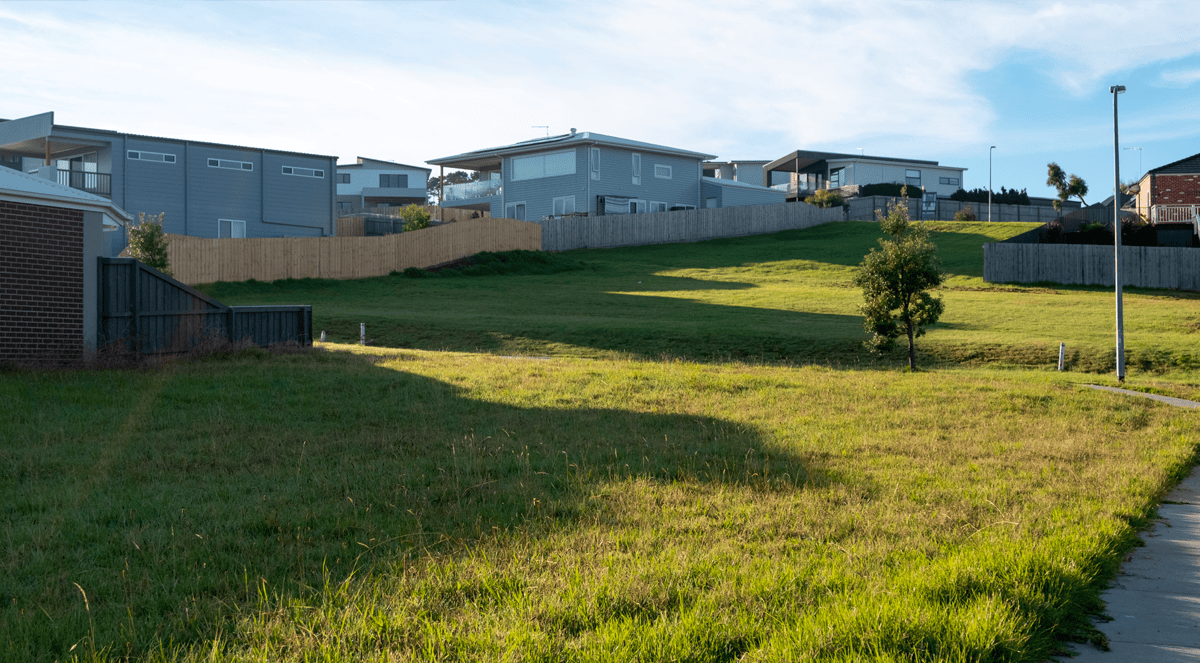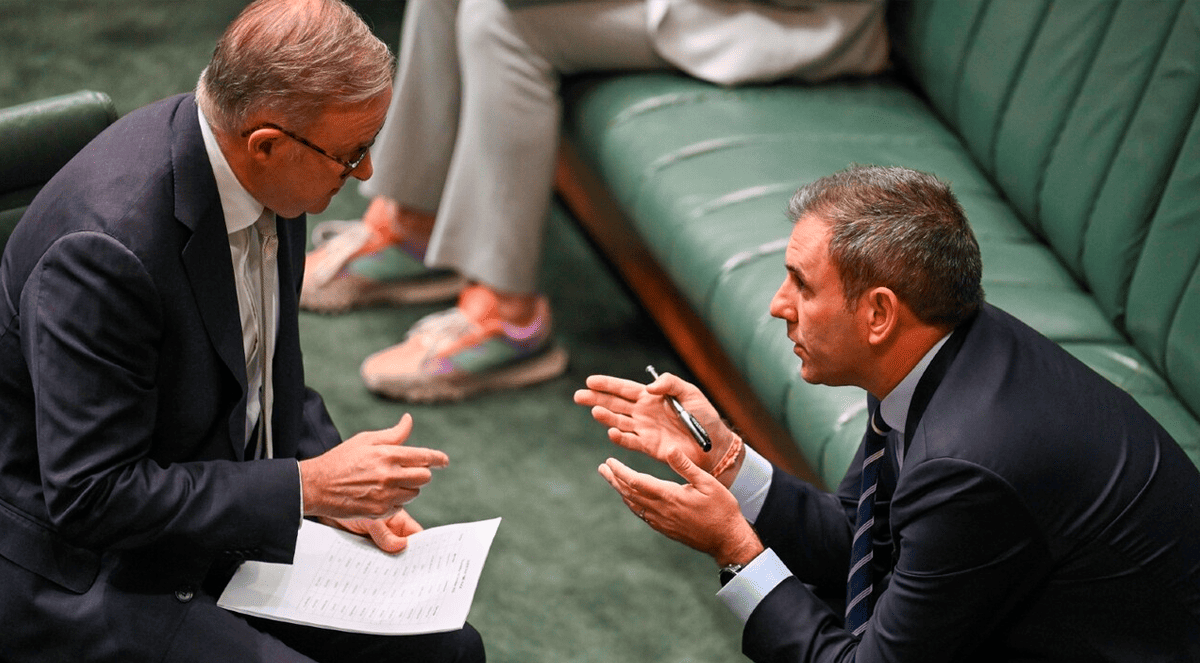-1.png)
KEY POINTS
- Property exchange platform PEXA says more than a quarter of all homes bought in New South Wales, Victoria and Queensland last financial year were “cash” purchases
- PEXA says 140,572 properties, worth $138 billion, were bought in the three states without a mortgage
- Cash buyers were often retirees or purchased in areas with environmental risks like floods or bushfires, making it difficult to obtain mortgages
It’s one of the biggest apparent contradictions in the property space:
Mortgage interest rates are at the highest point in more than a decade and have been for more than a year.
Yet nationally, property prices and values have continued to reach new highs.
One reason is that there’s a chronic housing shortage across the country, and for many, the demand for property has overtaken concerns about cost and mortgage indebtedness.
New figures from property exchange platform PEXA point to another reason.
A large proportion of buyers are purchasing property with cash.
They have no need for mortgage finance and so are oblivious to changes in interest rates.
The findings
PEXA Group says that in the 2023-24 financial year there were 140,572 ‘cash’ purchases worth an extraordinary $138 billion, just in the three most populous states of New South Wales, Victoria, and Queensland.
This accounted for 26.5% of all residential transactions across the three states or 28% in terms of money spent on residential properties.
The exchange platform says this is a rise in the volume and aggregate value of cash purchases compared to the previous financial year (2022-23).
Perhaps unsurprisingly, PEXA says the highest absolute values of cash purchases were “predominantly found in the affluent inner-city suburbs of Sydney and Melbourne, as well as the coastal areas of southeast Queensland, where property values tend to be high.
“Regional locations that have a high proportion of cash purchases tend to be home to an older demographic and attractive to buyers consisting of retirees, tree-changers, and sea-changers seeking regional lifestyle properties.”
However, it’s a more complicated picture in capital cities.
“The locations associated with cash purchases imply a wider and more complex range of buyer situations, such as established home movers and property investors.”
PEXA Group’s Chief Economist, Julie Toth, says “established buyers and investors are more likely to have access to other sources of finance to fund their purchase, or be able to buy outright.”
However, she says the data also indicates what she calls “a subtle shift” in Australia’s residential property market dynamics.
“Despite the increase in both the volume (+3.9%) and value (+14%) of cash purchases in FY24, their share of total property settlements declined over the year, from 26.9% (FY23) to 26.5% (FY24),” she says.
“These declines in the proportion of buyers who can ‘pay cash’ in NSW and QLD seem to correlate with a welcome return of first home buyer activity in these markets.”
Victoria has already seen a substantial rise in mortgage loans and a corresponding decrease in cash purchases over several quarters, suggesting first-home buyers have been out in force in the southern state.
This is perhaps a reflection of the relative affordability of home prices in Melbourne when compared to the expensive Sydney and Brisbane markets.
“We know that first home buyers are more likely than other buyers to need a mortgage to complete their settlements, even if they receive financial support from government, the ‘bank-of-mum-and-dad’ or other sources.”
PEXA says, nationally, homebuyers who received a family loan or a gift were given an average of $70,000 to help fund their purchases.
“This shift back toward first-home buyer activity helps to explain the gradual decline in the share of cash purchases that has been evident in these states in recent quarters,” Ms Toth says.
Not all cash buyers are “loaded”
PEXA says areas with a lot of cash buyers were more likely to have an older demographic, consisting of retirees, ‘treechangers’ or ‘seachangers’, looking to purchase regional properties.
However, those areas were also likely to have a high proportion of purchases that would be considered “risky investments”.
The property exchange platform points out that some cash buyers “would have difficulty obtaining funding from lenders”, for purchases “such as student accommodation, holiday homes and vacant lots.”
PEXA also found there was a high number of cash buyers “located in areas which had experienced recent flooding or are at high risk of future flooding.”
“Homebuyers in these areas may have been potentially unable to secure a mortgage for these properties, due to the financial institutions’ perceived level of environmental risk,” PEXA’s Cash Purchases 2024 report says.
Tim Osborne, the Co-founder of Land Insight - a PEXA Group subsidiary, notes the data shows an unusually high proportion of cash purchases in postcodes that have been affected by recent flooding or are at high risk of future flooding, including 2480 (Lismore - in northern New South Wales) and 2731 (Moama - on the New South Wales side of the Murray River).
This could well be people using insurance payouts from recent major flood events in these towns to purchase new homes.
However, with soaring insurance premiums, many may be unable to secure mortgages for their new dwellings.
“Difficulties securing affordable insurance in these areas can have a cascading impact on potential home buyers because mortgage providers generally require all mortgaged properties to be insured,” Mr Osborne says.
“This highlights the need for future homebuyers to better educate themselves and undertake their own due diligence on environmental factors before buying a home.
“Key considerations include checking for flood zones, bushfire risks, contamination risks.
“Understanding these environmental risks not only helps prevent unexpected costs but also provides peace of mind, ensuring a safer, more sustainable home purchase and securing of finance,” Land Insight’s Tim Osborne says.
Stay Up to Date
with the Latest Australian Property News, Insights & Education.




.png?width=292&height=292&name=Copy%20Link%20(1).png)
 SIGN UP FOR FREE NEWSLETTER
SIGN UP FOR FREE NEWSLETTER







%20Scott%20Kuru%20DPU%20145.jpg?width=1920&height=1080&name=Senate%20Inquiry%20Forced%20the%20RBA%20to%20Admit%20the%20Housing%20Crisis%20Will%20Never%20Be%20Fixed%20(It%20Was%20All%20a%20Lie)%20Scott%20Kuru%20DPU%20145.jpg)



%20Scott%20Kuru%20DPU%20141.jpg?width=1920&height=1080&name=The%20Senate%20Just%20Exposed%20Australias%20Biggest%20$80%20Billion%20Housing%20Fraud%20(Inquiry%20Launched)%20Scott%20Kuru%20DPU%20141.jpg)




%20Scott%20Kuru%20DPU136.jpg?width=1920&height=1080&name=Aussies%20Just%20Got%20Hit%20With%20Double%20Taxes%20on%20Everything%20(This%20Has%20Gone%20Too%20Far)%20Scott%20Kuru%20DPU136.jpg)


%20Scott%20Kuru%20DPU%20133.jpg?width=1920&height=1080&name=JUST%20IN%20Something%20Major%20Just%20Flipped%20Australia%E2%80%99s%20Property%20Market%20for%202026%20(No%20One%20Saw%20This%20Coming)%20Scott%20Kuru%20DPU%20133.jpg)


.jpg?width=1920&height=1080&name=Rental%20Prices%20At%20Record%20Highs%20And%20Vacancy%20Rates%20At%20All%20Time%20Lows%20(New%20Data%20Reveals).jpg)
%20%20DPU%20EP%2014.jpg?width=1920&height=1080&name=Investors%20Shutting%20Out%20First%20Home%20Buyers%20(Investors%20At%20Record%20Highs)%20%20DPU%20EP%2014.jpg)

.jpg?width=1920&height=1080&name=Darwins%20Property%20Market%20Boom%20or%20Dangerous%20Gamble%20(REVEALED).jpg)

.jpg?width=1920&height=1080&name=The%20RBA%E2%80%99s%20Rate%20Cut%20Could%20Explode%20House%20Prices%20(Here%E2%80%99s%20Why).jpg)








.jpg?width=1920&height=1080&name=Warning%2c%20You%20Might%20Be%20Facing%20Higher%20Taxes%20Soon%20(1).jpg)




.png?width=1920&height=1080&name=Rate%20Drops%20Signal%20BIGGEST%20Property%20Boom%20in%20DECADES%20(1).png)

.jpg?width=1920&height=1080&name=Labor%20vs%20Liberal%20These%20Housing%20Policies%20Could%20Change%20the%20Property%20Market%20Forever%20(1).jpg)
.jpg?width=1920&height=1080&name=QLD%20Slashes%20Stamp%20Duty%20Big%20News%20for%20Investors%20%26%20Home%20Buyers%20(1).jpg)
.jpg?width=1920&height=1080&name=Trump%20Just%20Slapped%20Tariffs%20%E2%80%93%20Here%E2%80%99s%20What%20It%20Means%20for%20Australia%20(1).jpg)
.jpg?width=1920&height=1080&name=Federal%20Budget%202025%20More%20Debt%2c%20No%20Housing%20%E2%80%93%20Here%E2%80%99s%20What%20You%20Need%20to%20Know%20(1).jpg)
.jpg?width=1920&height=1080&name=Australias%20Housing%20Crisis%20is%20about%20to%20get%20MUCH%20Worse%20(New%20Data%20Warns).jpg)
%20(1).jpg?width=1920&height=1080&name=Australias%20RENTAL%20CRISIS%20Hits%20ROCK%20BOTTOM!%20(2025%20Update)%20(1).jpg)
%20(1).png?width=1920&height=1080&name=Is%20Adelaide%20Still%20a%20Good%20Property%20Investment%20(2025%20UPDATE)%20(1).png)
.jpg?width=1920&height=1080&name=RBA%20Shocks%20with%20Rate%20Cuts!%20What%E2%80%99s%20Next%20for%20Property%20Investors%20(1).jpg)
%20(1).jpg?width=1920&height=1080&name=I%20Predict%20The%20Feb%20Rate%20Cut%20(My%20Price%20Growth%20Prediction)%20(1).jpg)
.png?width=1920&height=1080&name=Why%20Property%20Prices%20Will%20Rise%20in%202025%20Market%20Predictions%20(1).png)
.jpg?width=1920&height=1080&name=Why%20Investors%20Are%20Choosing%20Apartments%20Over%20Houses%202%20(1).jpg)
.jpg?width=1920&height=1080&name=Why%20Rate%20Cuts%20Will%20Trigger%20A%20Property%20Boom%20(1).jpg)
.jpg?width=1920&height=1080&name=Retire%20On%202Million%20With%20One%20Property%20(Using%20SMSF).jpg)
.jpg?width=1920&height=1080&name=4%20Reasons%20Why%20You%20Should%20Invest%20in%20Melbourne%20Now%20(1).jpg)
%20(1).jpg?width=1920&height=1080&name=Old%20Property%20vs%20New%20Property%20(Facts%20and%20Figures%20Revealed)%20(1).jpg)
%20(1).jpg?width=1920&height=1080&name=Will%20The%20New%20QLD%20Govt%20Create%20a%20Property%20Boom%20or%20Bust%20(My%20Prediction)%20(1).jpg)
%20Scott%20Kuru%20(1).jpg?width=1920&height=1080&name=Inflation%20Hits%20Three-Year%20Low%20(Will%20RBA%20Cut%20Rates%20Soon)%20Scott%20Kuru%20(1).jpg)
.jpg?width=1920&height=1080&name=How%20to%20Buy%20Investment%20Property%20Through%20SMSF_%20The%20Ultimate%20Guide%20(1).jpg)
.jpg?width=1920&height=1080&name=Victoria%20Slashes%20Stamp%20Duty%20Melbourne%20Set%20to%20Boom%20Scott%20Kuru%20(1).jpg)
.png?width=1571&height=861&name=Are%20Foreign%20Buyers%20Really%20Driving%20Up%20Australian%20Property%20Prices%20(1).png)
.jpg?width=1920&height=1080&name=The%20Single%20Factor%20That%20Predicts%20Property%20Growth%20Regions%20(1).jpg)
%20Scott%20Kuru%20(1).jpg?width=1920&height=1080&name=My%20Prediction%20On%20Rates%20%26%20Negative%20Gearing%20(Market%20Crash)%20Scott%20Kuru%20(1).jpg)

-1.png?width=1920&height=1080&name=Major%20Banks%20Cut%20Rates%20Will%20RBA%20Follow%20Suit%20(Sept%20Rate%20Update)-1.png)
%20Scott%20Kuru-1.png?width=1920&height=1080&name=Rate%20Cut%20Coming%20What%20New%20Zealands%20Move%20Means%20for%20Australia%20(Sept%20Prediction)%20Scott%20Kuru-1.png)
%20(1).jpg?width=1920&height=1080&name=Buy%20when%20the%20interest%20rates%20are%20high!%20(Why%20you%20must%20buy%20now!)%20(1).jpg)
.jpg?width=1920&height=1080&name=Carms_Revised%20Taxes%20Due%20Aug%209%20YT%20Thumbnail02%20(1).jpg)
.jpg?width=1920&height=1080&name=Carms_Too%20Little%20Too%20Late%20Aug%207%20YT%20Thumbnail01%20(1).jpg)









.jpg?width=1920&height=1080&name=Carms_Rate%20Drop%20In%20July%20Jun%2010%20YT%20Thumbnail02%20(1).jpg)
.jpg?width=1920&height=1080&name=Carms_Own%20a%20Property%20V6%20Jun%205_YT%20Thumbnail%20(1).jpg)









.png?width=1920&height=1080&name=Artboard%201%20(3).png)






.jpg?width=1920&height=1080&name=YT%20thumbnail%20%20(1).jpg)

